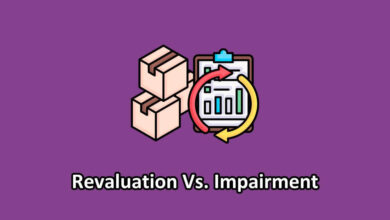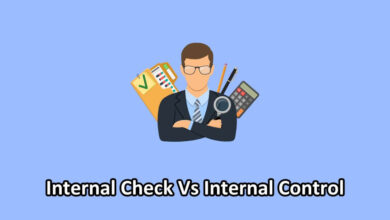Consumer Market Vs Business Market: Market Mysteries
In the bustling world of commerce, where consumer choices drive market dynamics, understanding the intricacies of consumer and business markets is paramount. Imagine a marketplace where every transaction tells a unique story, and every decision shapes the landscape of competition.
The consumer market and business market stand as two pillars of economic activity. The consumer market is a vibrant arena where individuals and households make their buying decisions. On the other hand, the business market involves transactions between businesses.
Both are vast ecosystems influencing each other and the economy at large. Now, let’s delve deeper into these domains.
Consumer Market Vs. Business Market (A Comparison)
| Consumer Market | Business Market |
|---|---|
| The consumer market refers to the vast arena where goods and services are bought and sold directly to individual end consumers or households. | The business market, also known as the B2B (business-to-business) market, involves transactions between businesses, organizations, or institutions. |
| In consumer markets, individual buyers, such as end consumers or households, play a pivotal role. | Business markets involve organizations, enterprises, or institutions as buyers, focusing on collective needs and organizational goals. |
| Consumers are often motivated by personal desires, emotions, or individual preferences when making purchasing decisions. | In the business market, the primary drivers are efficiency, cost-effectiveness, and productivity. |
| Consumer decisions tend to be relatively straightforward, with individuals making choices based on personal preferences, reviews, or immediate needs. | Business decisions, however, are characterized by complexity, involving multiple layers of scrutiny, approvals, and collaboration among various stakeholders. |
| Consumer markets are marked by numerous transactions, each involving smaller sums of money. | Business markets, in contrast, may experience fewer transactions, but each transaction involves larger sums of money. |
| Consumer markets often emphasize brand loyalty and individual customer relationships. | Business markets thrive on long-term partnerships and relationship-building. |
What is the Consumer Market?
The consumer market is a dynamic space where goods and services are bought and sold by individuals for personal use or household consumption. It represents the aggregate demand of millions of diverse consumers.
From everyday products to luxury items, the consumer market mirrors the ever-changing preferences and lifestyles of society.
Characteristics of the Consumer Market
- Diverse Demographics: The consumer market spans across demographics, including age, income, and cultural backgrounds. Understanding this diversity is crucial for businesses to tailor their offerings.
- Varied Buying Motivations: Consumers make purchases driven by various motivations, such as utility, status, or emotional fulfillment. Recognizing these motives shapes effective marketing strategies.
- Shorter Decision-Making Cycles: Consumer decisions often have shorter cycles, influenced by trends, advertising, or immediate needs. Businesses must adapt swiftly to stay relevant in this dynamic landscape.
- Direct Interaction with End Users: Unlike business markets, the consumer market involves direct interaction with end users. This necessitates a focus on customer experience and satisfaction.
What is a Business Market?
The business market, also known as the industrial or B2B market, revolves around transactions between businesses. Here, products and services are purchased for further production, resale, or operational purposes. It’s a realm where relationships and long-term partnerships play a pivotal role.
Characteristics of the Business Market
- Derived Demand: Business markets operate on derived demand, meaning the demand for their products is derived from consumer demand. Understanding this interdependence is crucial for strategic planning.
- Fewer but Larger Buyers: Business transactions often involve fewer buyers, but the scale of these transactions is substantial. Building and maintaining relationships with key clients become paramount.
- Complex Decision-Making Processes: Decision-making in business markets is intricate, involving multiple stakeholders and a comprehensive evaluation of factors. Businesses must navigate this complexity to secure deals.
- Emphasis on Personal Relationships: Unlike the consumer market, personal relationships and trust play a significant role in business transactions. Networking and rapport-building are key elements of success.
Key Differences Between Consumer and Business Markets
- Nature of Buyers: Consumer markets involve individual buyers, while business markets deal with organizations and enterprises.
- Purchase Motivation: Consumers are often driven by personal desires, whereas businesses focus on efficiency, cost-effectiveness, and productivity.
- Decision-Making Complexity: Consumer decisions are relatively straightforward, while business decisions involve multiple layers of scrutiny and collaboration.
- Volume of Transactions: Consumer transactions are numerous but smaller in scale, whereas business transactions are fewer but involve larger sums.
- Relationship Dynamics: Consumer markets emphasize brand loyalty, while business markets thrive on long-term partnerships and relationship-building.
Marketing Strategies for the Consumer Market
Advertising and Branding
In the consumer market, capturing attention is achieved through strategic advertising and branding. Effective advertising communicates a compelling message, while branding builds a recognizable identity. Together, they create a connection with consumers, fostering brand loyalty and influencing purchasing decisions.
Pricing Strategies
Consumer market pricing strategies revolve around finding the right balance between perceived value and competitive pricing. Understanding consumer behavior and market trends is crucial. Strategies may include competitive pricing, discounts, or value-added pricing to attract and retain customers in this dynamic and price-sensitive environment.
Distribution Channels
Efficient distribution channels are vital in the consumer market. From traditional retail to e-commerce, businesses must strategically position themselves where their target audience shops.
A seamless distribution network ensures that products are readily available, meeting consumer demand and enhancing overall customer satisfaction.
Marketing Strategies for Business Market
Relationship Building and Networking
In the business market, success often hinges on fostering strong relationships and effective networking. Building trust with key players in the industry is crucial. Businesses aim to create lasting connections through networking events, partnerships, and a personalized approach, ensuring a solid foundation for mutually beneficial collaborations.
Customization and Personalization
Business clients in the market demand tailored solutions to meet their unique needs. Customization and personalization are central strategies in the business market. Offering bespoke products or services demonstrates an understanding of the client’s specific requirements, fostering a sense of value and strengthening long-term relationships.
Long-term Contracts and Partnerships
Stability and reliability are paramount in the business market. Establishing long-term contracts and partnerships provides a sense of security for both parties involved. Businesses seek enduring relationships, which often lead to consistent revenue streams, shared resources, and collaborative growth over an extended period.
Conclusion
As we navigate the dynamic landscapes of consumer and business markets, it’s evident that each presents unique challenges and opportunities. From understanding the diverse motivations of individual consumers to navigating the intricacies of business transactions, businesses must craft strategies that resonate with the essence of each market.
In this ever-evolving journey, success lies in the ability to adapt, build meaningful connections, and stay attuned to the pulse of the market. So, embark on this expedition armed with insights, and let the synergy between consumer and business markets guide your strategic endeavors.



